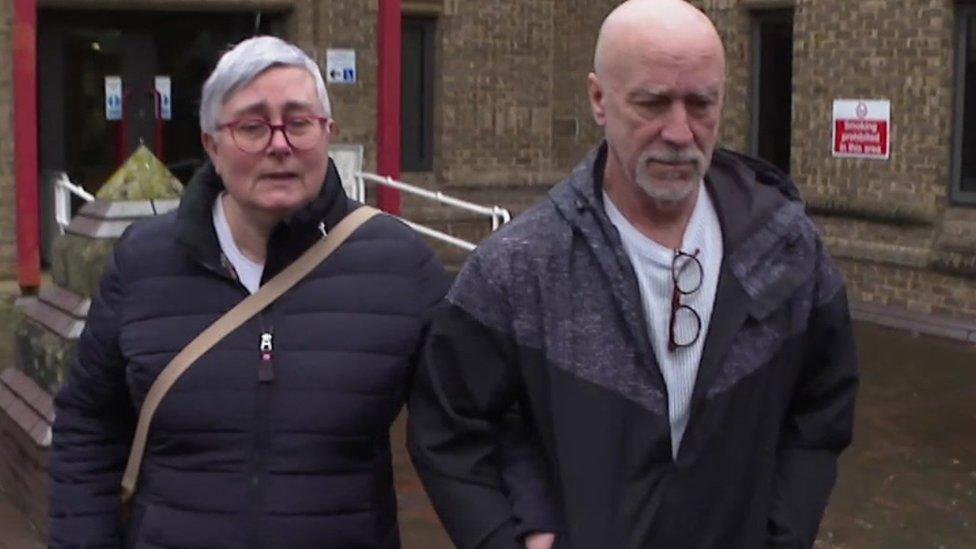Carers were 'dishonest' when claiming benefits - CPS
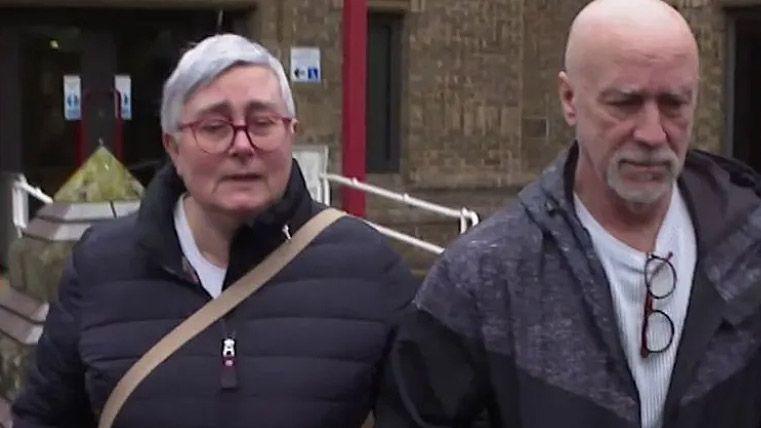
Vivienne Groom's prosecution prompted widespread national media coverage
- Published
The Crown Prosecution Service (CPS) is standing by its decision to convict two carers of benefit fraud, despite the cases leading to a public outcry.
Vivienne Groom from Cheshire and George Henderson from Lancashire were separately ordered to repay thousands of pounds worth of Carer's Allowance, claimed over several years.
Mr Henderson said he had "ticked a box mistakenly" when applying for the benefit, while Ms Groom said she had been told her income was too low to be declared.
The CPS had been urged to review the prosecutions but senior district crown prosecutor Emily Lloyd said it "did not believe" the errors on the forms were an "honest mistake".
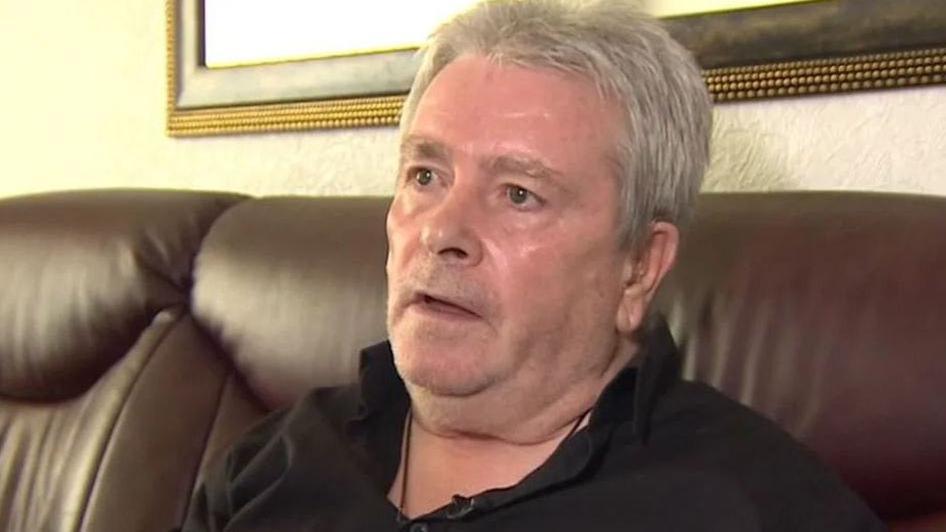
A DWP appeal concluded George Henderson made “an innocent mistake” in failing to declare his work as a taxi driver
What were the carers convicted of?
Ms Groom's £16,800 inheritance was seized after she had failed to declare her part-time minimum wage job at her local Co-op in Tarvin, near Chester, while she was caring for her mother between 2014 and 2019.
Without legal aid to pay for representation in court, she pleaded guilty to benefit fraud last year, and agreed a payment plan with the Department for Work and Pensions (DWP).
But after her mother died, the department referred the case to the CPS when it learned she was due to inherit £16,000 from the sale of her mother's house.
Ms Groom said a social worker had told her that her pay was too low to be declared, which was why she had not included it.
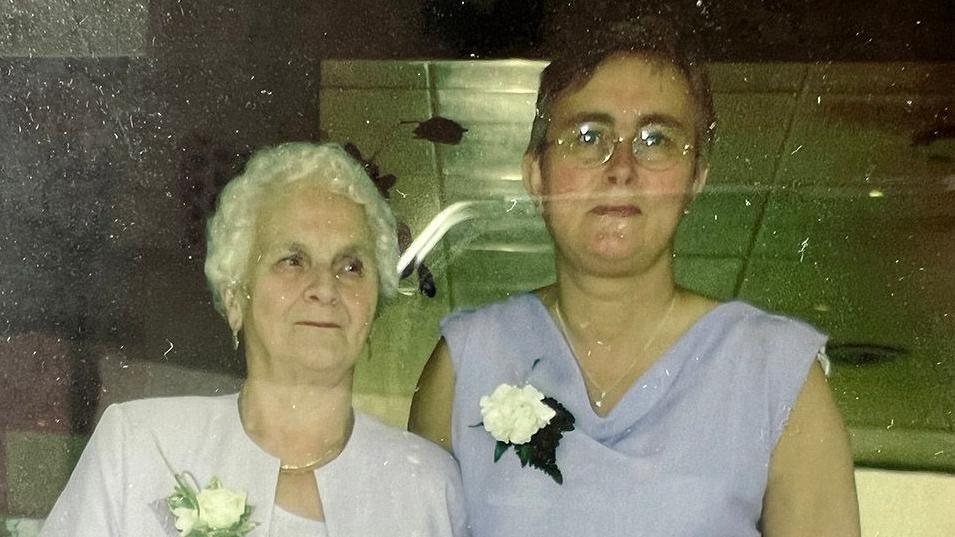
Ms Groom (right) had her inheritance seized after failing to declare her part-time minimum wage job while caring for her mother between 2014 and 2019
Mr Henderson was convicted after a trial in 2018 and forced to sell his house in Leyland to repay £19,500 plus interest and costs because he had failed to declare his work as a taxi driver while claiming Carer's Allowance for six years.
He was also handed a suspended prison sentence with requirements to wear an electronic tag.
Mr Henderson said that a DWP adviser did not tell him he had to declare the fact he was working as a taxi driver, adding: "I've ticked a box mistakenly and honestly incorrectly."
A DWP appeal by Mr Henderson in 2018 - separate to his conviction earlier that year - concluded his misrepresentation “was not done with fraudulent intent”, adding “it was more probable than not that you were telling the truth and the false declaration was an innocent mistake”.
The public outcry
Ms Groom’s prosecution prompted widespread national media coverage last month and concerns were raised in Parliament, including by Labour leader Sir Keir Starmer and Liberal Democrat leader Sir Ed Davey.
A former senior DWP carer’s allowance manager said prosecutions should be quashed “at the very least” in cases where officials failed to notice recipients were being wrongly paid the benefit over a number of years.
Alex Scahill, who managed DWP teams that administered Carer’s Allowance and Universal Credit until 2019, spoke to the BBC after seeing coverage of Ms Groom's case because he said it was "heartless" and made him “upset and outraged”.
“These people are vulnerable. It’s affected their health, it’s affected their lives,” he said, adding “that’s not what the DWP is about”.
He said the DWP was “complicit in perpetuating” overpayments where it had not acted on automatic alerts warning when Carer’s Allowance recipients may no longer be eligible for the benefit.
As of February 2023, the DWP said it was seeking to recover 145,567 overpayments of carer's allowance, including almost 12,000 cases concerning overpayments of between £5,001 and £20,000.
Labour MP for Oldham East and Saddleworth Debbie Abrahams is a member of the Work and Pensions select committee which questioned senior officials about Carer's Allowance overpayments last month.
She said “if (an overpayment is) over a period of time going back several years I personally think it should be written-off”.
What does the CPS say?
Emily Lloyd, from the CPS in Merseyside and Cheshire, said the form that Ms Groom and Mr Henderson would have used to claim Carer’s Allowance as “quite clear” because it asks: "Have you been employed at any time since six months before the date you want to claim?”
Ms Lloyd said: “The dishonesty test for the CPS is quite clear – would a reasonable person make this error?
"In both cases, the prosecutors did not believe so."
Other pages of the claim form also refer to employment, Ms Lloyd said, meaning “even if ticking ‘no’ was a mistake, these pages would have prompted the claimants”.
“A prosecution will not be brought where a complainant has made an honest mistake,” she added.
What does the DWP say?
A DWP spokesperson said it was “committed to fairness in the welfare system, with safeguards in place for managing repayments, while protecting the public purse”.
“Claimants have a responsibility to inform DWP of any changes in their circumstances that could impact their award, and it is right that we recover taxpayers’ money when this has not occurred”, they added.
Listen to the best of BBC Radio Merseyside on Sounds and follow BBC Merseyside on Facebook, external, X, external, and Instagram, external? You can also send story ideas to northwest.newsonline@bbc.co.uk, external
Related topics
- Published5 April 2024
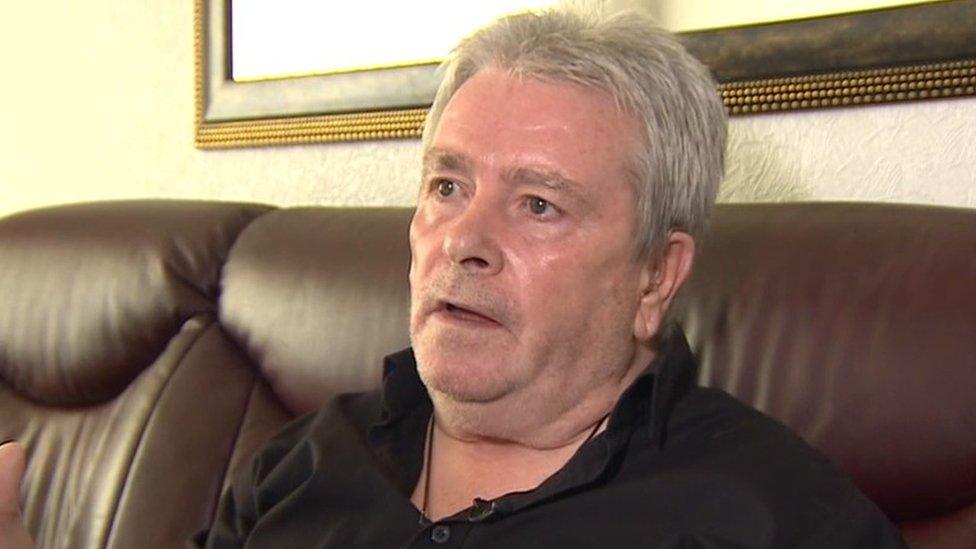
- Published4 April 2024
